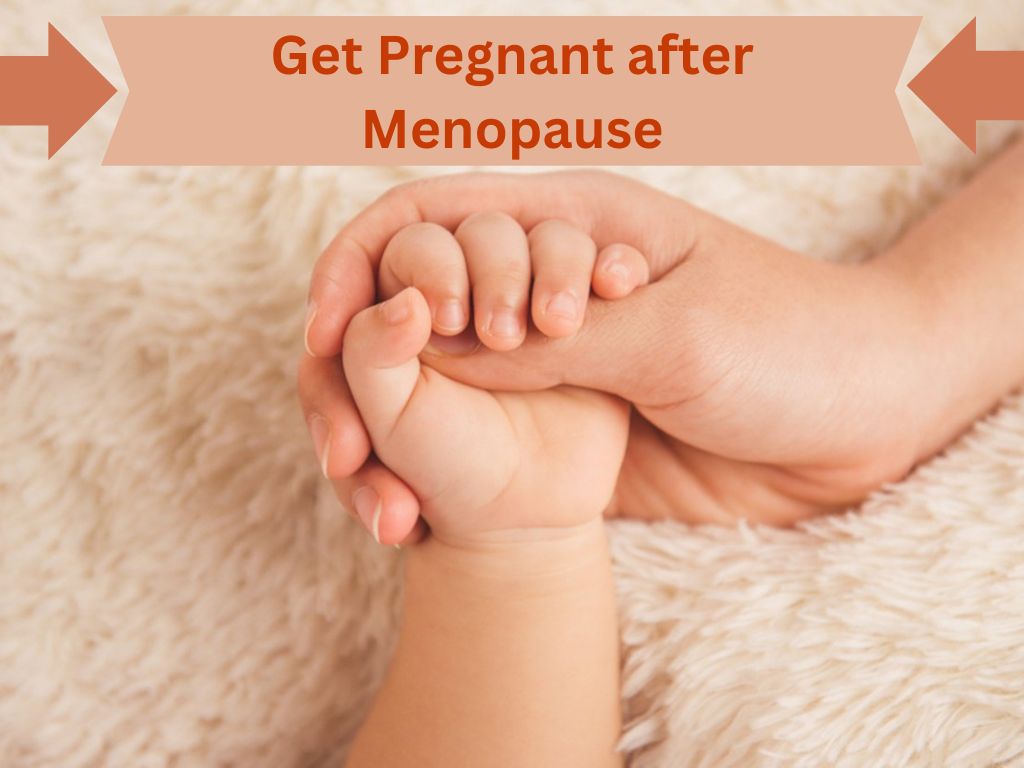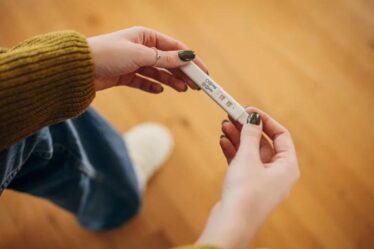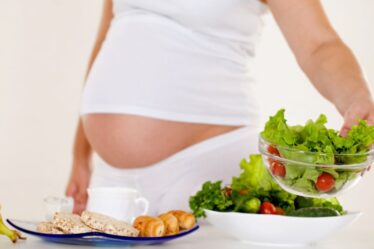
Here are some important facts concerning menopause and pregnancy, as well as information on how fertility treatments may make it feasible to pregnant after menopause.
Everyone has heard anecdotal tales of women who became pregnant and gave birth to healthy children in their 40s, 50s, or even later. But is it possible to become pregnant after menopause, the stage of life when menstrual periods end permanently?
Although it is uncommon, pregnancy after menopause may be feasible in some situations. A case report from 2020 revealed that an Iranian woman, then 54, delivered birth after passing through menopause at the age of 47. Recent advances in fertility medicine have also made it possible for some women to become pregnant without menstruating.
Here’s everything you need to know about the likelihood and potential risks of becoming pregnant after menopause, whether you’re curious about the possibility of pregnancy at 37 or 55.
Menopause: What Is It?
A typical aspect of healthy aging is menopause. Menopause is the period after a woman has gone 12 months without having her period and is sometimes referred to as the “change of life.” Menopause typically occurs in women between 45 and 55, though it can occasionally occur earlier or later.
The menopausal transition, also known as perimenopause, frequently begins in a person’s 30s or 40s and lasts for five years or longer.
Many perimenopausal women first experience changes to their menstrual cycle, such as lighter bleeding or erratic cycles. Their ovaries eventually cease releasing eggs each month, and they miss their period more frequently (ovulation).
The body’s estrogen and progesterone levels start to change drastically during perimenopause. Numerous symptoms, such as the following, can result from these hormonal changes:
- uncontrollable vaginal bleeding
- a hot flash
- excessive perspiration, particularly during night
- Insomnia
- quick heartbeat
- adverse affects on sexual function, such as decreased libido and dry vagina
- Headaches
- urine leaks brought on by pelvic floor alterations
- Anxiety, despair, and mood swings
- aching joints
- mental haze
- difficulties with memory
- infections of the urinary tract (UTIs)
Perimenopause and Pregnancy
Age causes a drop in fertility. Your ovarian reserve, or the quantity and caliber of your remaining eggs, starts to decline when you reach your mid-30s. About 25% of couples in their 20s and 30s will become pregnant in a given cycle. By the time they are 40, barely 10% of women will become pregnant in a given month.
However, until a year has passed after your last period, you should utilize contraception if you are going through menopause and do not intend to become pregnant. Although it’s unlikely, it’s not impossible to become pregnant unintentionally while going through perimenopause.
However, if you want to try for a baby and detect menopause symptoms, talk to your healthcare professional about fertility testing. They can measure your fertility-related hormones like follicle-stimulating hormone (FSH) and Anti-Mullerian hormone (AMH) to give you a better idea of your chances of becoming pregnant shortly.
Read More -: Menopause Symptoms | Is The Menopause Painful?
Post menopause: What Is It?
Post menopause is the period after a woman’s menstrual cycle has ended permanently. The average age at which someone experiences menopause and begins the postmenopausal phase is 51. However, this varies greatly.
After menopause, many people experience changes in their weight, body composition (such as how their body’s fat is distributed), energy levels, mood, and general health and well-being. Additionally, there are several potential long-term side effects of postmenopause, such as:
- irregular vaginal bleeding
- Bone loss
- Osteoporosis (a condition with weak, fragile bones) (a condition involving weak, brittle bones)
- excessive blood pressure
- elevated cholesterol
- higher chance of developing heart disease
- higher risk of stroke
Lower estrogen levels are associated with several postmenopausal health issues, but the aging process also affects others. Frequently, lifestyle modifications, hormone therapy, dietary supplements, and medication can be used to treat these symptoms.
After or During Menopause Pregnancy | Pregnant after Menopause
Typically, after going through menopause, women do not spontaneously become pregnant.
However, with fertility techniques such as in vitro fertilization, it might be feasible to conceive in the postmenopausal stage (IVF). In vitro fertilization (IVF) is assisted reproductive technology (ART) that involves mating sperm and eggs in a lab. Your uterus receives the embryo.
Even with help, you won’t be able to ovulate after menopause (release an egg from your ovary). IVF is frequently used by post-menopausal women who desire to conceive using donor eggs. You can use donated sperm or sperm from your partner to fertilize donor eggs. Even if you’ve experienced menopause, you can still use stored eggs or embryos for in vitro fertilization (IVF).
Read More -: How to Get Pregnant Fast | Tips to Help You Conceive
Pregnancy Risks After Menopause | Pregnant after Menopause
The biggest risk of IVF at any age is an elevated possibility of multiple pregnancies. Your fertility specialist can only transfer one embryo at a time to lessen the likelihood of having twins or triplets.
Those who become pregnant beyond age 35 are also more likely to experience the following:
- Miscarriage
- birth prematurely
- Cesarean delivery (C-section)
- Pre-eclampsia (high blood pressure during pregnancy) (high blood pressure during pregnancy)
- Having a child that is chromosomally defective and has a condition like Down syndrome
Many of these risks, including the potential for congenital disabilities, may be minimized using donor eggs from a younger person during IVF. A healthy lifestyle modification and regular prenatal care can help prevent or manage some conditions, such as preeclampsia.
Frequently Asked Question
Ans. – Although it is extremely uncommon, pregnancy after menopause can cause vaginal bleeding, like during the reproductive years. As a result, when women complain of postmenopausal bleeding and are referred to clinics or hospitals, doctors or midwives should consider pregnancy while making a diagnosis.
Ans. – Until at least a year since your last menstruation, women over 50 should utilize contraception. Even if you’re still getting periods, 55 is typically seen as the cutoff age for needing contraception. You won’t be able to become pregnant beyond this point since you will enter menopause.
Ans. – If you are over 50 and attempting to get pregnant, fertility medication will probably be necessary. Although it is extremely uncommon, getting pregnant naturally at 50 is not impossible. All the eggs a woman will ever have are present when she is born.
Ans. – After menopause, women still ovulate, albeit considerably less frequently than before. After all, other factors besides ovulation affect fertility, such as the presence of a healthy, fertile spouse and an active sex life.
Ans. – Most frequently, the menopausal transition starts between ages 45 and 55. It typically lasts seven years, although it can last up to fourteen years. The length of time can vary depending on lifestyle factors, including smoking, the age at which it starts, and race and ethnicity.




hsHcSaZi
tYiskFdxhINoGebX
[…] Also Read – Can a Woman Get Pregnant after Menopause ? […]
[…] Also Read – Can a Woman Get Pregnant after Menopause ? […]